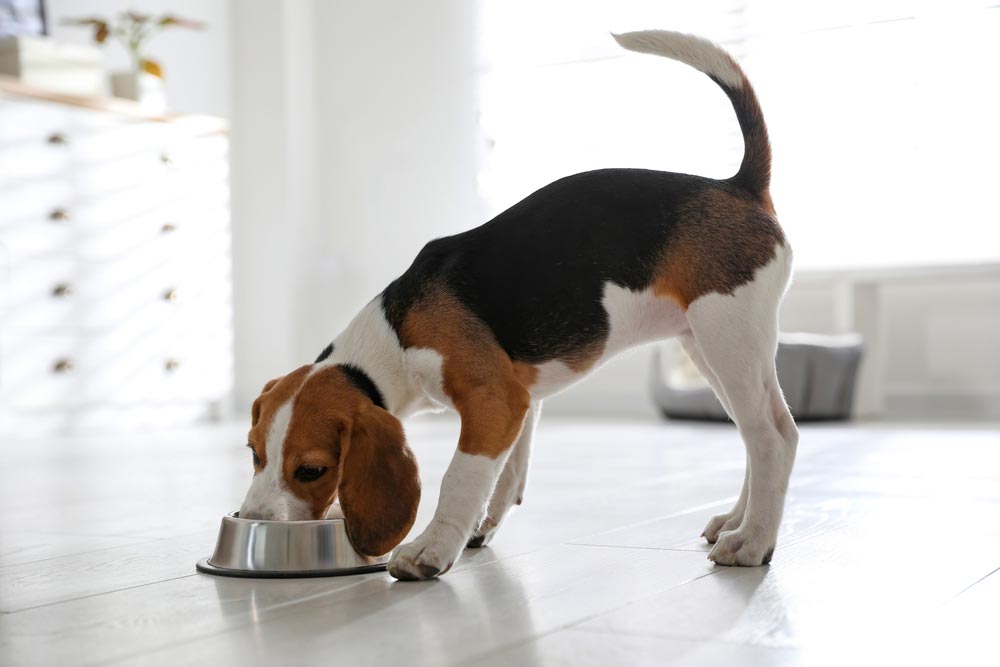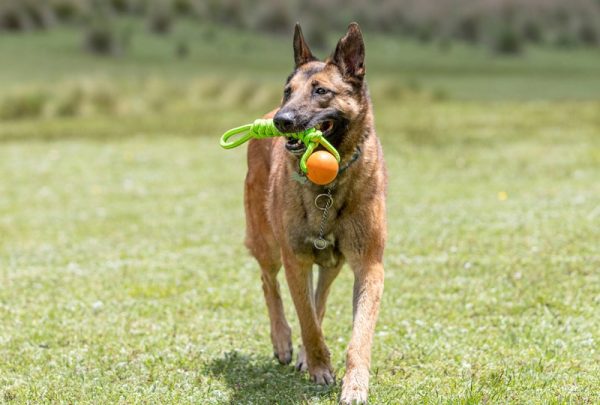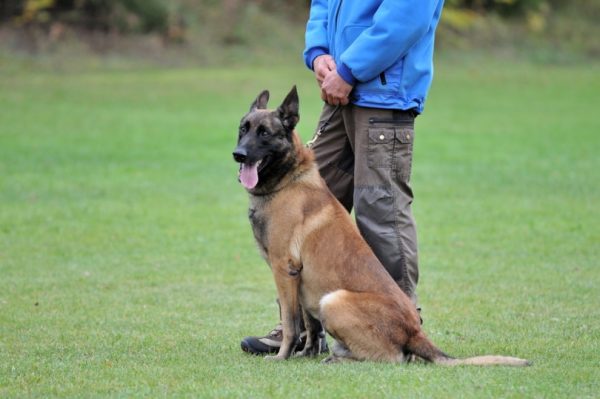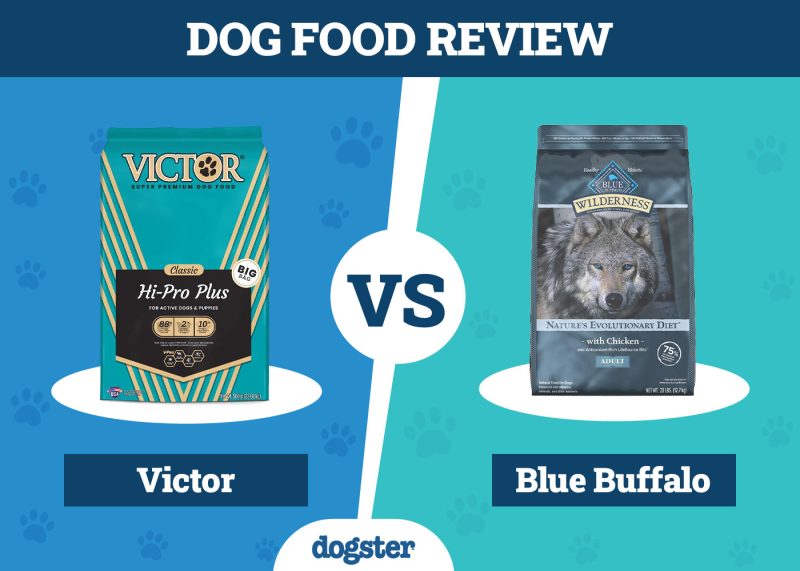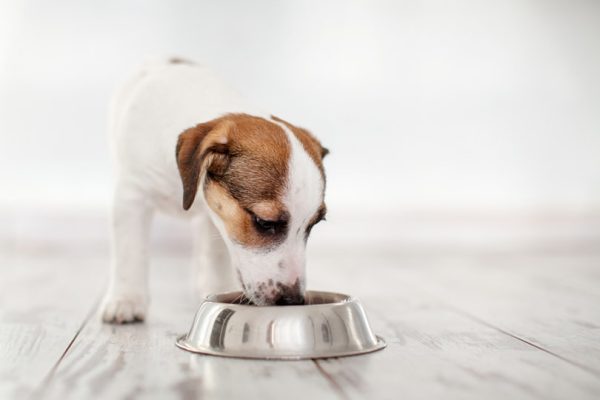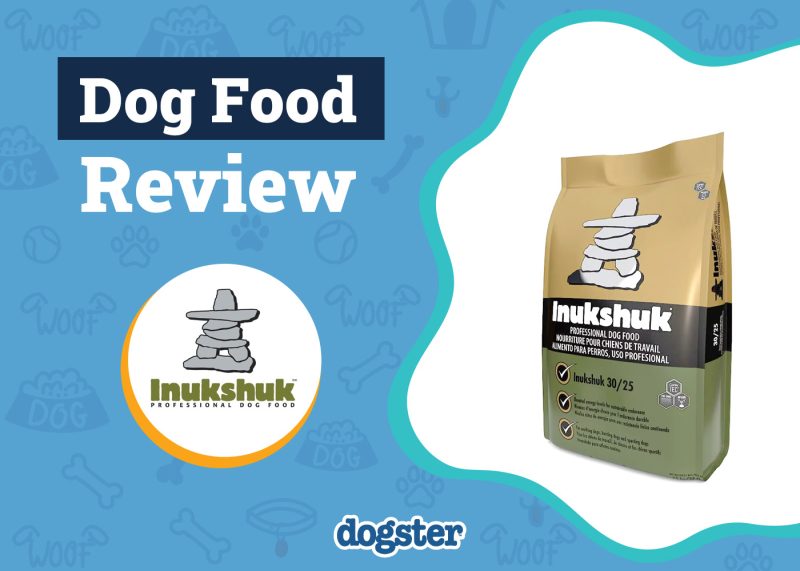Puppies seem to grow rapidly before our very eyes. Most puppies are vacuum cleaners, instantly sucking up their food as soon as you put it down. However, if you have a puppy that seems to be unable to put on weight or even loses weight instead of gaining it, we definitely recommend getting to the bottom of the issue.
In this article, we’ll discuss six reasons that puppies may have trouble gaining weight and what to do about it. Most cases will involve a visit to the veterinarian.

The 6 Reasons Why a Puppy Might Not Gain Weight
Puppy’s require a lot of energy to fuel their playfulness and provide for proper growth and development. If your puppy isn’t gaining weight appropriately, it can cause more significant health issues down the line.
It can impact many aspects of canine health, like immunity and digestion. It can also cause structural issues due to poor growth. So, ensuring your pup gets all the right ingredients right off the rip will help secure a positive future.
1. Insufficient Caloric Intake
Our puppies require more food as they grow. Sometimes, they require a higher calorie intake than even full-grown dogs due to the number of calories they burn.
If you aren’t quite keeping up on how much food your puppy needs from week to week, you might be accidentally depriving them of much-needed nutrients. A puppy that is underfed can quickly lose weight, or at least not gain weight properly.
It is crucial to measure your puppy’s meals and weight appropriately. You can consult a vet about how much to feed your puppy and how much they should weigh for their life stage. It is important to point out that underfeeding doesn’t usually stunt growth, but it can slow things down for a time.
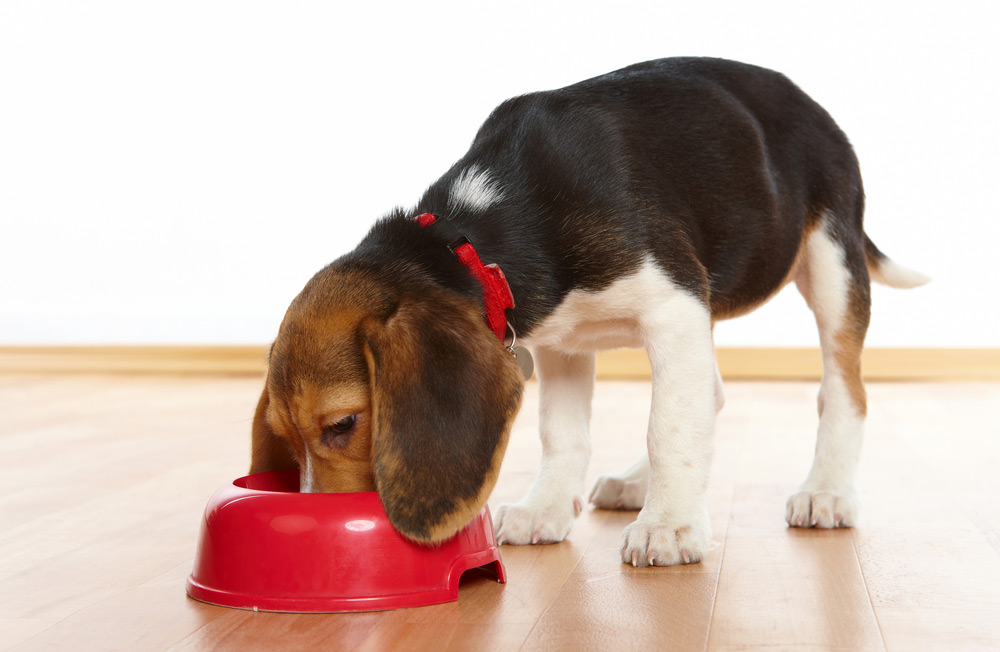
2. Intestinal Parasites
Intestinal parasites are very common in young puppies and can be a real problem if they’re not treated. If you have yet to do any kind of parasite cleanse with your puppy, it might be time to make a trip to the vet to get a treatment.
Parasites can rob your puppy of vital nutrients they require to grow and develop properly. If puppies aren’t able to absorb these nutrients, they can quickly be robbed of what the body needs to thrive. While it is a very fixable issue, it is definitely one you have to stay on top of.
- Pot-bellied appearance
- Dry coat
- Blood in stool
- Loose stool
- Visible worms in feces
Certain dewormers are better than others, so ask a vet for recommendations on the safest and most effective brands.
3. Food Allergies or Sensitivities
If your puppy suffers from food allergies or sensitivities, it can prevent nutrients from being digested properly in the gut. This can lead to issues gaining weight and developing properly. It is important to detect issues early on, so you can treat them accordingly.
Even though allergies and sensitivities may slow growth for a time, it should work itself out once the diet is changed. Usually, these issues have more visual signs than just a pause in growth.
- Dry, red, itchy skin
- Diarrhea, vomiting
- Frequent ear infections
Your vet can run tests or try food trials if allergies or sensitivities are suspected.
On a similar note, some foods may be too rich for a puppy’s developing digestion. These cases aren’t allergies necessarily, just a diet that’s higher in fat and protein than a puppy is ready for and can cause diarrhea, vomiting and weight loss. Consult a veterinarian about the best diet for your puppy.
If you need to speak with a vet but can't get to one, head over to PangoVet. It's an online service where you can talk to a vet online and get the personalized advice you need for your pet — all at an affordable price!

4. Digestive Issues
Another common reason for your puppy not gaining weight could be due to a digestive issue. There are many types of digestive issues that dogs can suffer from, including inflammatory bowel disease, infections, or even eating something they shouldn’t. Some digestive issues can affect the nutrient uptake when your dog consumes food.
Because there are so many digestive issues it could be, it is important to see a vet to pinpoint a specific cause. The cause will determine the course of action for helping your puppy gain weight.
5. Dietary Changes
It’s not uncommon for us to experiment with a puppy’s diet, especially in those first few weeks. We’ll likely feed something different than their previous owners, and we may even change brands or formulas after that to find one that is just right. Frequent switching of food, especially if those changes are made abruptly, can cause some digestive issues that may include not gaining weight. It takes time for a dog’s gut to adjust to be able to efficiently digest a new diet, and during this adjustment period, your puppy may not be getting all that they should out of their food, potentially decreasing their rate of weight gain.

6. Teething
Puppies start to lose their baby teeth at around 3 months of age. By six months old, most puppies will have their full set of adult teeth. So, that’s 3 months where a puppy could be experiencing teething pain. During this time, a puppy may be reluctant to eat, either due to inflammation of the gums or because their teeth haven’t erupted yet. Either way, you may notice a decrease in their weight gain during this time.

When to See a Vet
If you notice any plateau or decrease in your puppy’s weight, get them to the vet right away. It is imperative that any issue is treated promptly to avoid long-term consequences. A vet can perform the correct testing, such as blood work, imaging, and anything else they think your puppy might need.
What the tests show will determine treatment. It could simply be a matter of increasing their calorie intake, or they could need parasite treatment. But it’s definitely not something that you want to take a “wait and see” approach on.
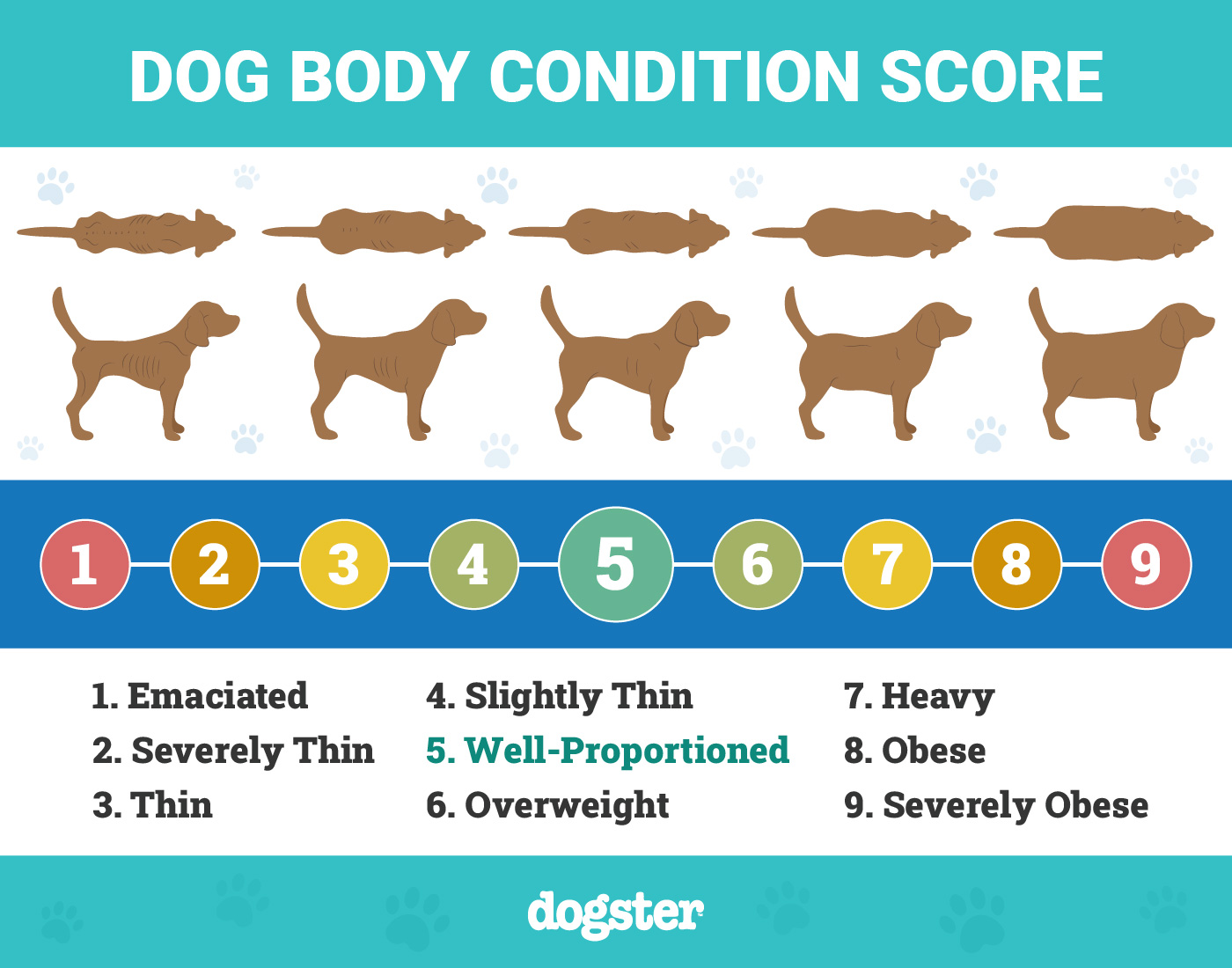
Ways to Help Your Puppy Gain Weight
There are ways your puppy can start to put on the appropriate amount of weight. A vet will likely prescribe their own method for what they think is best for your particular situation.
But here are some high calorie, nutrient-rich items you can add as standalone snacks or toppers to your dog’s diet if a vet recommends that you increase their calorie intake.
1. Kibble Toppers
Adding a tasty topper to the meal will definitely ramp up their appetite. If your puppy is having trouble gaining weight, a few tasty morsels sprinkled on top can certainly make a difference!
You can get all sorts of different textures and tastes for toppers. Companies make purees, wet foods, and crunchy chunks to make a boring bowl of kibble more exciting.
2. Broth
Broth is not only a perfect way to spruce up your pup’s appetite, but it’s also a wonderful way to add hydration to your daily meals. Broth can boost many vital nutrients, like glucosamine and hyaluronic acid. Just make sure to use a low sodium variety.
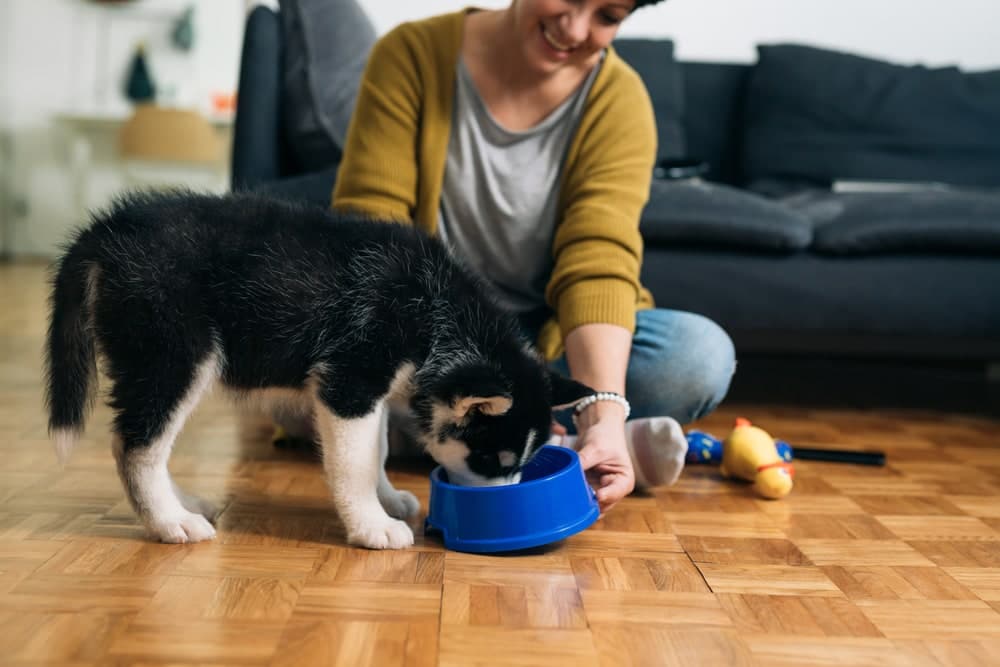
3. Fresh Meat
What dog wouldn’t want nice slabs of fresh meat? Meat can help your puppy gain much-needed muscle and develop appropriately. Just make sure to steer clear of any seasonings, spices, or additives.
Meat is an excellent source of iron, protein, fat, and other vital nutrients. Choose lean cuts to provide a protein punch without overdoing it on the fat.

Conclusion
A puppy not gaining weight or even losing weight is no mild matter. It is incredibly important that your puppy continues to gain weight appropriately as they age. If you have noticed a decrease in your puppy’s weight or you know they have not gained weight appropriately, it is imperative to see a veterinarian to get answers.
Featured Image Credit: New Africa, Shutterstock
